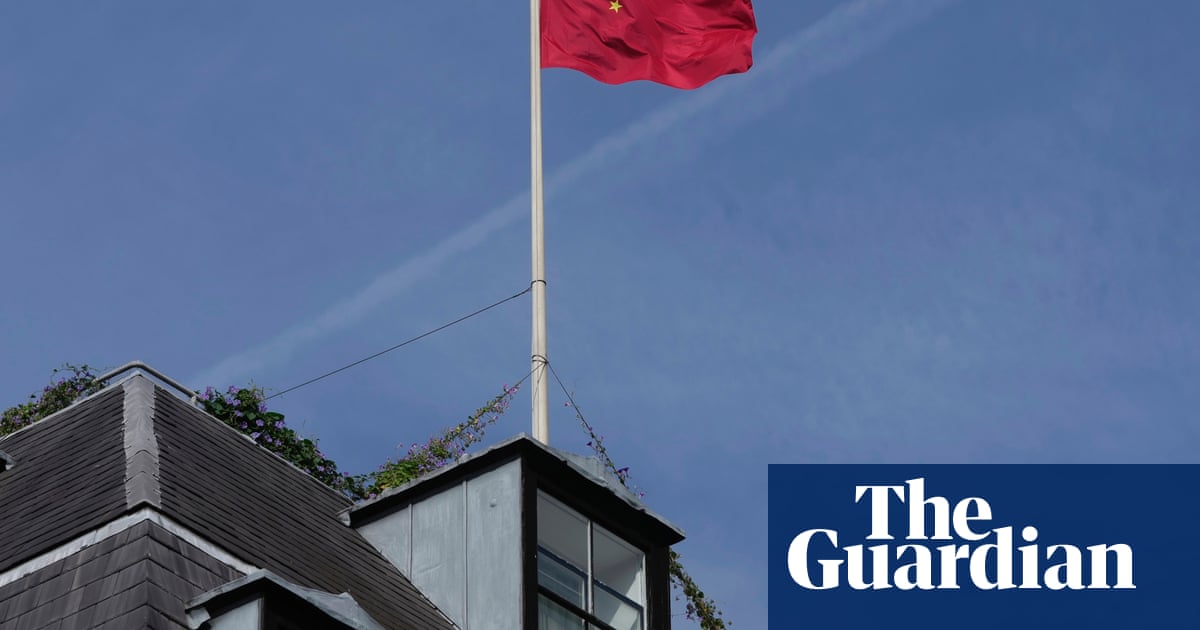Chinais considering lifting the sanctions it imposed on UK parliamentarians in 2021, in the latest sign of warming relations between London and Beijing.
The Chinese government is reviewing the sanctions, which itintroduced four years agoin response to what it called “lies and disinformation” about human rights abuses in Xinjiang, according to two UK government sources familiar with the conversations.
Asked to comment, a spokesperson for the Chinese embassy inLondonsaid: “China has always attached importance to developing relations with the UK. Currently, UK-China relations are showing a positive momentum.”
“Exchanges and dialogues between the UK andChinaat all levels and in all fields will help enhance mutual understanding and trust between the two sides, and will also help promote the continuous development of bilateral relations and practical cooperation, which benefit the two peoples.”
The development comes after a week in which several high-ranking Chinese officials visited the UK and held talks with senior government figures.
He Lifeng, China’s vice-premier, and Wang Wentao, its commerce minister, were in London fortrade talks with the US last week. He metRachel Reeves, the UK chancellor, while Wang held talks with Jonathan Reynolds, the business and trade secretary.
Liu Jianchao, one of China’s top diplomats who heads the international department of the Chinese Communist party, paid a three-day visit to the UK early last week where he met David Lammy, the foreign secretary, and Jonathan Powell, the national security adviser. None of these meetings were publicised by the UK government.
Liu also participated in an event with British MPs hosted by the Great Britain China Centre, an arm’s-length government body, where China’s sanctions on UK parliamentarians were raised repeatedly. The visit faced criticism because Liu is an architect ofChina’s campaign of repressionagainst its citizens overseas.
It is unknown whether China is considering lifting all the sanctions it imposed on UK citizens and organisations four years ago, or only some. Nine UK citizens were banned from China in 2021, including five Conservative MPs and two members of the House of Lords. They were targeted for highlighting human rights violations against the MuslimUyghurcommunity in the north-western province of Xinjiang.
China’s sanctions were a retaliationagainst theUK imposing sanctions on Chinese officialsheld responsible for atrocities in Xinjiang. UK officials said there was no prospect of the government lifting those.
The five MPs sanctioned in 2021 were the former Tory leader Iain Duncan Smith, Tom Tugendhat, Nusrat Ghani, Neil O’Brien and Tim Loughton, who stood down last summer. The two peers were David Alton, a crossbencher, and Helena Kennedy from Labour. Several are members of the Inter-Parliamentary Alliance on China.
The Newcastle University academic Jo Smith Finley, whose research focuses on theUyghurs, and Geoffrey Nice QC, who chaired the Uyghur Tribunal that investigated atrocities against the minority group, also had sanctions imposed upon them.
Those under sanctions are banned from entering China, Hong Kong and Macau, any property they have in China has been frozen and Chinese citizens and institutions are prohibited from doing business with them.
Sign up toFirst Edition
Our morning email breaks down the key stories of the day, telling you what’s happening and why it matters
after newsletter promotion
In April, China lifted its sanctions on five MEPs and on the European parliament’s subcommittee on human rights, which were also imposed in 2021 in response to the EU’s own sanctions. The move was part of Beijing’s charm offensive to improve ties andrevive talks over a trade deal with Brussels, amid the turmoil caused by Donald Trump’s tariffs.
There is no prospect of a UK-China trade deal. However, Beijing is awaiting a government decision over the fate of itsproposal to build a controversial super-embassynear the Tower of London. Ministers are due to approve or reject the plan this summer. The US government has reportedly raised concerns about the security implications.
UK officials are drawing up plans for Reynolds tovisit Beijing to revive a key trade dialogue with Chinalater this year, and for Keir Starmer to make a bilateral trip to the country, potentially in the autumn.
Labour took a much stronger stance towards human rights abuses in Xinjiang in opposition, when it pledged to take action to recognise them as genocide. It hassoftened its position in governmentand sought to build closer ties with China in pursuit of economic growth.
During his visit to London last week, Liu also met Tony Blair, the former prime minister. Blair, who is expected to travel to China later this year, continues to informally advise senior figures in the UK and US on foreign policy matters.
